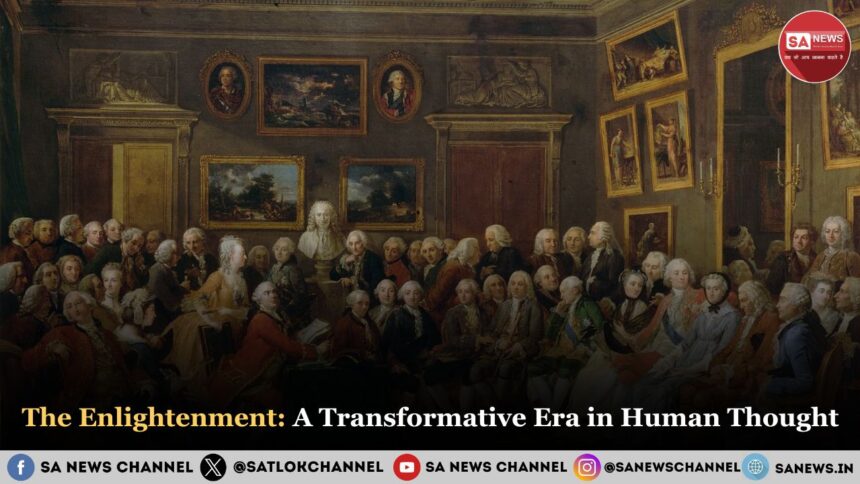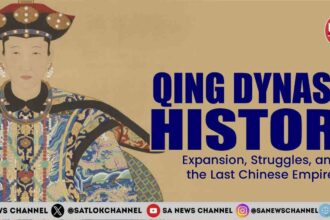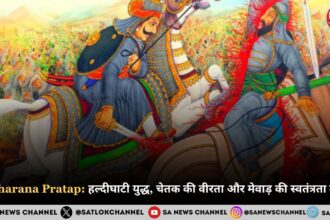The Enlightenment, also known as the Age of Reason, was a profound intellectual and cultural movement that swept across Europe in the 17th and 18th centuries. It emphasized reason, scientific inquiry, individual rights, and secularism, challenging centuries of tradition, religious authority, and absolute monarchy.
- Renaissance Influence (14th–17th Century)
- Reformation and Religious Transformation (16th Century)
- Scientific Revolution (16th–17th Century)
- Main Ideas of the Enlightenment And Reason Over Tradition
- Natural Rights and Social Contract
- Secularism and Tolerance
- Progress and Education
- Key Enlightenment Thinkers
- Enlightenment and Politics & Influence on Revolutions
- Challenging Monarchy
- Enlightenment and Religion
- The Role of Women
- Impact on Art and Culture
- Enlightenment Beyond Europe
- Criticism and Limitations
- The Enlightenment and it’s Legacy
- Spiritual Perspective
- FAQs on the history of Enlightenment
Rather than beginning precisely in the 1500s, the Enlightenment emerged more fully in the late 1600s and peaked during the 1700s. However, the seeds of this movement were sown earlier through the Renaissance, Reformation, and Scientific Revolution developments that unfolded during and after the 1500s.
Renaissance Influence (14th–17th Century)
The Renaissance, meaning “rebirth,” began in Italy in the 14th century and gradually spread across Europe. It marked a rediscovery of classical Greek and Roman knowledge, art, and literature. Humanism, emphasizing the value and dignity of the individual emerged during this period and laid the intellectual foundation for the Enlightenment. Thinkers such as Erasmus and Petrarch encouraged critical thinking and questioned blind obedience to authority.
Reformation and Religious Transformation (16th Century)
The Protestant Reformation, initiated by Martin Luther in 1517, questioned the authority of the Catholic Church and emphasized direct access to the scriptures. This religious upheaval led to greater literacy, the proliferation of printed materials (thanks to Gutenberg’s printing press), and a spirit of inquiry. Although the Reformation was theological in nature, it encouraged individuals to think for themselves, one of the Enlightenment’s central tenets.
Scientific Revolution (16th–17th Century)
The Enlightenment drew heavily from the Scientific Revolution, which shifted focus from theological explanations of nature to empirical observation and experimentation. Figures like Nicolaus Copernicus, Galileo Galilei, Johannes Kepler, and Isaac Newton revolutionized human understanding of the cosmos. Newton’s “Principia Mathematica” (1687) especially became symbolic of the power of reason and evidence, showing that the universe operates according to discoverable natural laws.
Main Ideas of the Enlightenment And Reason Over Tradition
At the heart of the Enlightenment was the belief in reason, the capacity of humans to think, understand, and solve problems without reliance on dogma. Enlightenment thinkers believed that through rational thought, society could be improved.
Natural Rights and Social Contract
Philosophers such as John Locke and Jean-Jacques Rousseau argued that individuals have natural rights, life, liberty, and property, and that governments exist only through a social contract to protect these rights. These ideas challenged the divine right of kings and laid the groundwork for modern democratic theory.
Secularism and Tolerance
The Enlightenment promoted a secular worldview, advocating for the separation of church and state. Thinkers like Voltaire fought against religious intolerance and supported freedom of speech, religion, and conscience.
Progress and Education
Enlightenment thinkers believed in the possibility of progress. Through education and reform, they argued, societies could become more just, rational, and prosperous.
Key Enlightenment Thinkers
John Locke (1632–1704)
An English philosopher, Locke’s theories on government, education, and empiricism deeply influenced political thought. His work “Two Treatises of Government” argued that legitimate governments must have the consent of the governed and protect natural rights.
Voltaire (1694–1778)
A French writer and philosopher, Voltaire was a fierce critic of religious dogma and absolutism. His wit and advocacy for civil liberties made him a key figure in shaping Enlightenment values.
Jean-Jacques Rousseau (1712–1778)
Rousseau emphasized emotion, natural living, and the general will. His famous work “The Social Contract” presented the idea that sovereignty lies with the people, not monarchs.
Baron de Montesquieu (1689–1755)
Montesquieu advocated for the separation of powers in government. His book “The Spirit of the Laws” laid the foundation for modern checks and balances systems in constitutional democracies.
Denis Diderot (1713–1784)
Diderot was the chief editor of the “Encyclopédie,” a massive work compiling knowledge across disciplines with a rationalist and secular tone. It aimed to democratize knowledge and was a defining project of the Enlightenment.
Immanuel Kant (1724–1804)
A German philosopher, Kant famously declared, “Enlightenment is man’s emergence from his self-imposed immaturity.” He called for autonomy of thought and moral reasoning independent of religious authority.
Enlightenment and Politics & Influence on Revolutions
The Enlightenment’s political ideals had a direct influence on revolutionary movements:
- The American Revolution (1775–1783): The Declaration of Independence, written by Thomas Jefferson, drew heavily from Locke’s theories of natural rights and government by consent.
- The French Revolution (1789–1799): Inspired by Rousseau, Voltaire, and others, revolutionaries overthrew the monarchy, established a republic, and introduced the “Declaration of the Rights of Man and of the Citizen.”
Challenging Monarchy
Enlightenment thought questioned the legitimacy of absolutist rule. Monarchs who embraced Enlightenment ideas, such as Frederick the Great of Prussia, Catherine the Great of Russia, and Joseph II of Austria, became known as “Enlightened Despots,” attempting reforms like religious tolerance, legal codification, and educational improvements.
Enlightenment and Religion
Although not entirely anti-religious, Enlightenment thinkers were critical of institutionalized religion. They promoted Deism, the belief in a rational Creator who does not interfere in human affairs. This view rejected miracles and emphasized morality based on reason rather than scripture. While this led to tension with the Church, it also encouraged the idea that morality could be based on human empathy and ethics.
The Role of Women
While Enlightenment thinkers mostly focused on male experiences, some women played significant roles in the movement:
Mary Wollstonecraft argued for women’s education and equality in her work “A Vindication of the Rights of Woman” (1792).
Madame Geoffrin and other salonnières hosted salons where intellectuals gathered to discuss Enlightenment ideas, providing women indirect access to philosophical debates.
Impact on Art and Culture
The Enlightenment had a visible impact on literature, art, and music. Literature became a tool for social critique, as seen in the satirical works of Voltaire and Jonathan Swift. In art, Neoclassicism reflected Enlightenment ideals by drawing inspiration from classical antiquity, emphasizing symmetry and reason. Composers like Mozart and Haydn reflected Enlightenment values of order, clarity, and balance in their music.
Enlightenment Beyond Europe
Though centered in Europe, Enlightenment ideas spread globally, particularly to the Americas. Revolutionary ideals reached Latin America, influencing independence movements in the 19th century. Enlightenment thought also had an impact on educational reforms and legal systems across colonial territories, though often filtered through a Eurocentric lens.
Criticism and Limitations
Despite its many advances, the Enlightenment was not without flaws:
- Many Enlightenment thinkers upheld colonialism and viewed non-European societies as “less civilized.”
- The era did not result in immediate improvements for all, especially women, the poor, and enslaved people.
- Rationalism, while powerful, sometimes led to elitism and dismissal of emotion, tradition, and spiritual values.
- Romanticism arose in the late 18th century as a reaction to the Enlightenment’s emphasis on reason, instead celebrating emotion, nature, and the individual spirit.
The Enlightenment and it’s Legacy
The Enlightenment shaped the foundation of modern Western political, scientific, and educational institutions. Its values of liberty, equality, reason, and secular governance continue to influence constitutions, legal systems, and human rights discourses around the world.
Educational systems today, with their emphasis on critical thinking and inquiry, owe much to Enlightenment ideals. Scientific progress, democratic governance, and secular institutions are rooted in the achievements of this period.
Spiritual Perspective
The Enlightenment marked a bold departure from blind faith and oppressive authority. It awakened minds to reason, science, and liberty. Yet, in its fervent quest for rational understanding, it often dismissed the spiritual dimension of existence, the very essence that gives life its ultimate meaning.
True enlightenment is not limited to intellectual awakening. As explained by Sant Rampal Ji Maharaj, an already recognized Enlightened Saint of our time, real enlightenment begins when one realizes the Supreme God, not by assumption or inherited belief, but through the evidence of authentic scriptures and the spiritual guidance of a Tatvdarshi Saint.
According to the sacred texts of all major religions, there exists one Supreme God, Kabir Saheb Ji, who is the Eternal Father of all souls. The Vedas, the Quran, the Bible, and Guru Granth Sahib all point toward this Supreme Being, yet His identity remains hidden to most. Only a true Saint, one who is well-versed in the essence (tatv) of these scriptures, can unveil this eternal truth and show the correct method of worship that leads the soul back to Satlok, the immortal realm beyond death and suffering.
The Enlightenment liberated humanity from external tyranny, but spiritual enlightenment frees the soul from inner bondage from ignorance, illusion, and the cycle of birth and death. This liberation cannot be achieved through philosophy alone. It requires Naam Diksha (initiation) from the Complete Saint, and sincere devotion as prescribed by the Supreme God Himself.
Sant Rampal Ji Maharaj is imparting this divine knowledge today, not based on imagination, but rooted in scripture-backed truth. His mission is not just to inform, but to transform, to elevate souls beyond worldly distractions toward eternal peace and salvation.
If you’re seeking the deeper meaning of life, the truth about God, and the path to true liberation, read the spiritual books written by Sant Rampal Ji Maharaj, such as Gyan Ganga, Jeene Ki Rah, and Way of Living. These books contain the eternal wisdom hidden in plain sight, decoded for the true seeker. To read the book, download the Sant Rampal Ji Maharaj app.
FAQs on the history of Enlightenment
1. When did the Enlightenment begin and end?
The Enlightenment emerged in the late 17th century and continued through the 18th century. While it does not have fixed dates, most historians place its peak between 1715 and 1789, ending with the start of the French Revolution.
2. What were the major causes of the Enlightenment?
Key causes include the Renaissance (rediscovery of classical learning), the Reformation (religious reform and literacy), the Scientific Revolution (empirical reasoning), and growing dissatisfaction with absolute monarchy and Church authority.
3. How did the Enlightenment influence political revolutions?
Enlightenment principles such as liberty, equality, and natural rights directly influenced the American Revolution, French Revolution, and later democratic movements around the world. Thinkers like Locke and Rousseau laid the ideological groundwork for challenging monarchies.
4. Did the Enlightenment oppose religion?
Not entirely. While it criticized institutionalized religion and dogma, many Enlightenment thinkers supported Deism—the belief in a rational Creator without reliance on organized religion. It promoted religious tolerance rather than atheism.
5. What is the spiritual view on Enlightenment according to Sant Rampal Ji Maharaj?
According to Sant Rampal Ji Maharaj, true enlightenment is not just intellectual but spiritual, attained through knowledge from authentic scriptures and devotion to the Supreme God Kabir Saheb Ji. While reason is vital, it must be balanced with spiritual truth to attain liberation.








